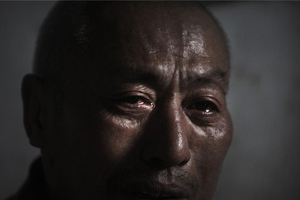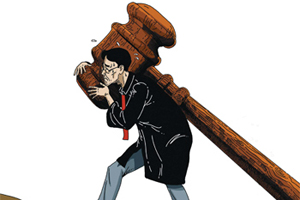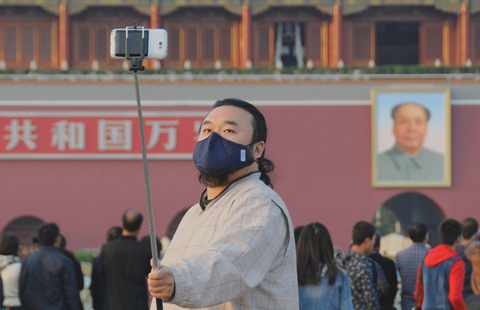China may scrap death penalty for 9 crimes
( Xinhua ) Updated: 2014-10-27 10:26:03BEIJING - Chinese lawmakers are considering removing the death penalty as punishment for nine crimes, including smuggling weapons and nuclear materials.
The draft amendment to Criminal Law was submitted on Monday to the Standing Committee of the National People's Congress (NPC) for a first reading during the legislature's bi-monthly session, which runs from Monday to Saturday.
According to the draft amendment, the nine crimes include smuggling weapons, ammunition, nuclear materials or counterfeit currency; counterfeiting currency; raising funds by means of fraud; arranging for or forcing another person to engage in prostitution; obstructing a commander or a person on duty from performing his duties; and fabricating rumors to mislead others during wartime.
After removing the death penalty for these crimes, those convicted will face a maximum sentence of life imprisonment, according to the draft.
The draft amendment is another move by China to limit the use of the death penalty following a decision at a key meeting of the Communist Party of China last year to gradually reduce the number of crimes subject to the death penalty, said Li Shishi, director of the Legislative Affairs Commission of the NPC Standing Committee.
Li said removal of death penalty for these crimes does not mean the overall punishment would be lessened.
Authorities will strengthen law enforcement and give severe punishment for those who deserve it so as to ensure the general situation of public security, Li said.
The draft amendment also provides stricter rules for the execution of convicts who have been sentenced to death with reprieve.
If the proposal is adopted, it will be the second time the People's Republic of China has reduced the number of crimes punishable by death since the Criminal Law took effect in 1979.
In 2011, the NPC Standing Committee dropped the death penalty for 13 economic-related non-violent crimes including smuggling cultural relics, gold and silver; carrying out fraud related to financial bills; forging or selling forged exclusive value-added tax invoices; teaching criminal methods; and robbing ancient cultural ruins.
Exempting the 13 crimes from the death penalty has not caused negative effects for public security, and the social response toward reducing the number of crimes subject to the death penalty has been positive, Li said.
Under the current Criminal Law, the number of crimes punishable by death is 55.
China has kept the death penalty while strictly controlling and prudently applying capital punishment. The country has made various efforts to limit use of the death penalty in recent years.
On Jan. 1, 2007, the Supreme People's Court resumed reviewing death penalty cases before approval to make sure decisions by lower courts are accurate.
The draft amendment did not remove capital punishment for corruption crimes. Instead, lawmakers are considering imposing harsher punishment on those committing crimes of embezzlement and bribery.
Those involved in such crimes with "especially huge amounts of money and causing especially huge loss to the interest of the country and people" could be sentenced to death, according to the draft amendment.
The draft also added crimes regarding cyber security, enhancing protection of citizens' personal information and ascertaining responsibilities for Internet service providers failing to fulfill duties of network security management.
In its stipulations against terrorism, the draft added several items to the current law to crack down more heavily on terrorism.
Those promoting terrorism and extremism by producing and distributing related materials, releasing information, instructing in person or through audio, video or information networks will face more than five years in prison in serious cases. Those who instigate violent terror activities will also face the same punishment, according to the draft amendment.
Those who instigate or force people to damage legal systems including marriage, justice, education and social management will be sentenced to more than seven years in prison in extremely serious cases, according to the draft.
To safeguard social principles of good faith, the draft proposed that those counterfeiting passports, social security cards and driving licenses will also face punishment.
Organizing cheating in examinations and bringing civil litigations based on fabricated facts to pursue illegitimate interests are also listed as crimes that are punishable to imprisonment up to seven years and three years respectively.
 Call for rule of law |
 Courts court change |
|
|
|
|
|
|
|
|


















 Raymond Zhou
Raymond Zhou Op Rana
Op Rana Berlin Fang
Berlin Fang Zhu Yuan
Zhu Yuan Huang Xiangyang
Huang Xiangyang Chen Weihua
Chen Weihua